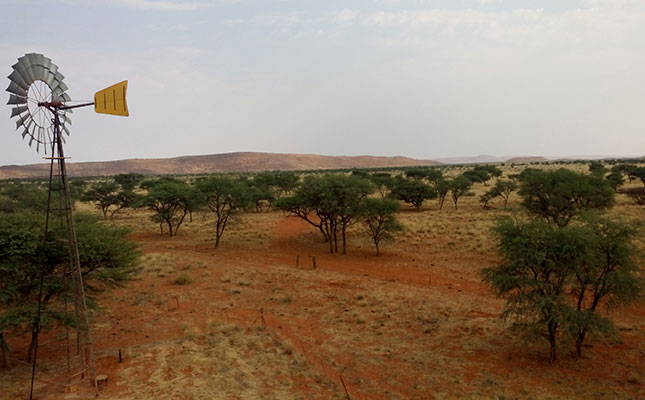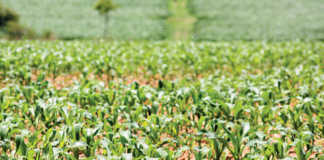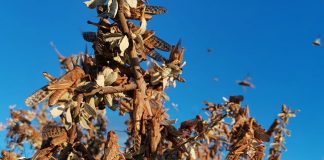
Photo: Helmuth Stehn
The Namibia Agricultural Union (NAU) has welcomed the decision by that country’s Ministry of Agriculture, Water and Land Reform to withdraw two permits issued for the drilling of 37 boreholes for exploration and hydrogeological purposes in the Stampriet Basin.
An official letter by the ministry stated that the withdrawal had followed non-compliance with permit conditions by Headspring Investments, the Russian company that was investigating uranium mining in the basin.
According to Piet Gouws, president of NAU, uranium mining in the basin, as proposed by Headspring Investments, would affect not only Namibia, but also the adjacent areas in Botswana and South Africa.
According to a 2021 study published on scielo.org, the Stampriet Basin was a multilayered aquifer covering 65 000km² in Namibia. It was a vital resource in this semi-arid part of the southern Kalahari, where surface water was scarce and unreliable.
Groundwater supported domestic use of water, as well as agriculture, which was the main contributor to job creation and the economy of this region, the study found.
“We’re extremely relieved that the ministry has acted in such a decisive manner. We cannot afford to lose the Stampriet Basin, as [it’s]one of the most important sources of potable water in the country,” Gouws said.
“Should uranium mining be allowed, it could render the water in the south-eastern region of Namibia unfit for human and animal consumption, effectively bringing agriculture to a total and permanent standstill in the area.”
Percy Misika, minister of agriculture, stated in the letter that the exploration boreholes had not been drilled as per permit conditions. Requirements for drilling activities were, among others, that the Kalahari aquifer be cased off and grouted before the commencement of
drilling in the Auob aquifer, which had not been done.
Some of the boreholes had also been left uncovered for long periods, forming pathways that could result in contaminants entering the subsurface.
Misika indicated that Headspring Investments had also drilled about 70 additional boreholes for exploration purposes, and seven more for hydrogeological study purposes without the necessary permits.
Gouws said landowners in the Stampriet Basin had for the past number of months been subjected to “the extreme arrogance of the mining companies demanding access to their land for prospecting and exploration”.
“It has come as a huge relief that the state has taken steps to act on the sometimes unscrupulous companies operating in the area.”
________________________________________________________________________
Matter of fact – Uranium mining in Namibia
The article ‘Proposed uranium mining in Namibia threatens farming’, published on Farmer’s Weekly’s website on 30 September 2021, included some inaccuracies.
The ‘scientific report’ referred to was, in fact, information that appeared in a presentation included in a weekly newsletter of the Namibia Agricultural Union (NAU). This information was based on the work of geologist Dr Roy Miller.
It was also incorrectly stated that the Environmental Compliance Consultancy (ECC) was the author of the report. All quotes or other information were also incorrectly attributed to the ECC, as the information in the story came from the NAU’s newsletter, which included the presentation by Miller.
Farmer’s Weekly wishes to apologise to our readers and also to parties quoted in this article for the errors that appeared in this story. This article has been removed from our website.
Farmer’s Weekly has a high regard for factual accuracy and welcomes reader input.













